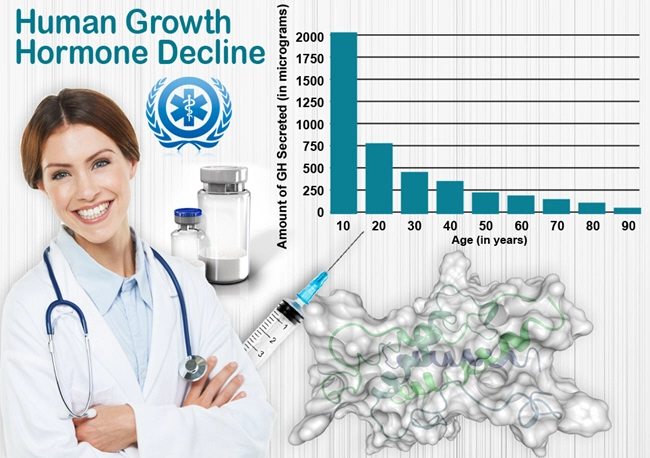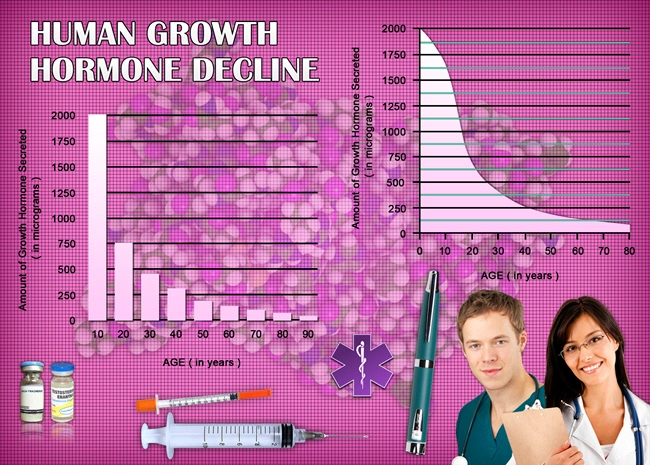
Introduction
The intricate relationship between endocrinology and gastrointestinal health is a burgeoning field of study, particularly in the context of American males. Hormones, the body's chemical messengers, play a pivotal role in regulating various physiological processes, including digestion and metabolism. This article delves into the comprehensive analysis of how hormonal influences affect gastrointestinal health, offering insights into the mechanisms at play and their implications for male health in the United States.
The Role of Hormones in Gastrointestinal Function
Hormones such as gastrin, cholecystokinin (CCK), and secretin are fundamental to the digestive process. Gastrin, for instance, stimulates the secretion of gastric acid, which is crucial for breaking down food. In American males, imbalances in these hormones can lead to conditions such as gastritis or peptic ulcers. Research has shown that stress, a common issue among American men, can exacerbate these imbalances, leading to increased gastric acid production and subsequent gastrointestinal distress.
Impact of Testosterone on Digestive Health
Testosterone, often associated with male reproductive health, also influences gastrointestinal function. Studies have indicated that testosterone levels can affect the motility of the gastrointestinal tract. Lower testosterone levels, which can occur with aging or certain medical conditions, have been linked to slower gastric emptying and increased risk of constipation. Given that testosterone levels naturally decline with age, this is a significant concern for older American males, who may experience a higher incidence of gastrointestinal issues as a result.
The Gut-Brain Axis and Hormonal Regulation
The gut-brain axis is a bidirectional communication system that links the emotional and cognitive centers of the brain with peripheral intestinal functions. Hormones such as cortisol, which is released in response to stress, can disrupt this axis, leading to gastrointestinal symptoms like irritable bowel syndrome (IBS). American males, who often face high levels of stress due to work and societal pressures, may be particularly susceptible to such disruptions. Understanding the role of hormonal regulation in this axis is crucial for developing effective interventions for gastrointestinal health.
Thyroid Hormones and Gastrointestinal Motility
Thyroid hormones, which regulate metabolism, also have a significant impact on gastrointestinal motility. Hypothyroidism, a condition more common in older adults, can lead to decreased motility and constipation. Conversely, hyperthyroidism can cause diarrhea and increased bowel movements. For American males, maintaining thyroid health is essential for ensuring optimal gastrointestinal function and preventing related disorders.
Insulin and the Gastrointestinal Tract
Insulin, primarily known for its role in glucose metabolism, also affects the gastrointestinal tract. Insulin resistance, a precursor to type 2 diabetes, can lead to altered gut motility and increased risk of gastrointestinal cancers. Given the rising prevalence of diabetes among American males, understanding the link between insulin and gastrointestinal health is critical for early intervention and management.
Conclusion
The interplay between endocrinology and gastrointestinal health in American males is a complex and multifaceted issue. Hormonal imbalances can lead to a variety of gastrointestinal disorders, ranging from simple digestive issues to more severe conditions such as cancer. By understanding the hormonal influences on gastrointestinal function, healthcare providers can better tailor interventions to improve the health and well-being of American males. As research continues to unravel the intricacies of this relationship, it is clear that a holistic approach to health, considering both hormonal and gastrointestinal factors, is essential for effective care.
Contact Us Today For A Free Consultation
Dear Patient,
Once you have completing the above contact form, for security purposes and confirmation, please confirm your information by calling us.
Please call now: 1-800-380-5339.
Welcoming You To Our Clinic, Professor Tom Henderson.

- Hormonal Imbalances and Sleep Disorders: Impact and Interventions for American Men [Last Updated On: March 16th, 2025] [Originally Added On: March 16th, 2025]
- Hormonal Changes in American Men Over 50: Impacts and Management Strategies [Last Updated On: March 17th, 2025] [Originally Added On: March 17th, 2025]
- Endocrinology's Role in Weight Management for American Males: Hormones and Strategies [Last Updated On: March 17th, 2025] [Originally Added On: March 17th, 2025]
- Vitamin D's Crucial Role in Endocrine Health for American Males [Last Updated On: March 18th, 2025] [Originally Added On: March 18th, 2025]
- Autoimmune Endocrine Disorders: Symptoms, Diagnosis, and Treatment for American Males [Last Updated On: March 19th, 2025] [Originally Added On: March 19th, 2025]
- Diet's Impact on Endocrine Health in American Men: Testosterone, Thyroid, Insulin, Adrenals [Last Updated On: March 19th, 2025] [Originally Added On: March 19th, 2025]
- Managing PCOS in Transgender American Men: Endocrinological and Holistic Approaches [Last Updated On: March 19th, 2025] [Originally Added On: March 19th, 2025]
- Lifestyle Choices and Their Impact on Endocrine Health in American Men [Last Updated On: March 19th, 2025] [Originally Added On: March 19th, 2025]
- Endocrinology's Role in Managing Chronic Fatigue in American Males: Hormonal Insights [Last Updated On: March 20th, 2025] [Originally Added On: March 20th, 2025]
- Endocrinology's Role in Men's Sexual Health: Understanding and Treating Dysfunction [Last Updated On: March 21st, 2025] [Originally Added On: March 21st, 2025]
- Endocrine Health and Cancer Risk in American Men: A Comprehensive Overview [Last Updated On: March 22nd, 2025] [Originally Added On: March 22nd, 2025]
- Endocrinology's Role in Enhancing Athletic Performance for American Male Athletes [Last Updated On: March 22nd, 2025] [Originally Added On: March 22nd, 2025]
- Endocrine Health's Impact on Mental Well-being in American Males [Last Updated On: March 22nd, 2025] [Originally Added On: March 22nd, 2025]
- Alcohol's Impact on Male Endocrine System: Hormones, Health, and Mitigation Strategies [Last Updated On: March 23rd, 2025] [Originally Added On: March 23rd, 2025]
- Smoking's Impact on Endocrine Health in American Men: Hormonal Disruption and Risks [Last Updated On: March 23rd, 2025] [Originally Added On: March 23rd, 2025]
- Endocrinology's Role in Muscle Health for American Males: Hormones and Optimization Strategies [Last Updated On: March 23rd, 2025] [Originally Added On: March 23rd, 2025]
- Endocrine Health and Prostate Cancer: A Vital Connection for American Men [Last Updated On: March 23rd, 2025] [Originally Added On: March 23rd, 2025]
- Endocrine Disruptors: Impact on American Male Health and Mitigation Strategies [Last Updated On: March 23rd, 2025] [Originally Added On: March 23rd, 2025]
- Managing Endocrine Disorders in American Men with Autoimmune Diseases: A Comprehensive Guide [Last Updated On: March 24th, 2025] [Originally Added On: March 24th, 2025]
- Hormonal Imbalances and Male Infertility: Insights and Solutions for American Men [Last Updated On: March 24th, 2025] [Originally Added On: March 24th, 2025]
- Hormonal Impacts on Dental Health in American Men: Testosterone, Diabetes, Thyroid, and Cancer Risks [Last Updated On: March 24th, 2025] [Originally Added On: March 24th, 2025]
- Exercise Benefits for American Males: Enhancing Endocrine Function and Hormonal Balance [Last Updated On: March 24th, 2025] [Originally Added On: March 24th, 2025]
- Endocrine Health and Hearing: Implications for American Males [Last Updated On: March 24th, 2025] [Originally Added On: March 24th, 2025]
- Nutrition's Impact on Endocrine Health for American Males: A Comprehensive Guide [Last Updated On: March 24th, 2025] [Originally Added On: March 24th, 2025]
- Hormonal Influences on Joint Health in American Men: Insights and Management Strategies [Last Updated On: March 24th, 2025] [Originally Added On: March 24th, 2025]
- Managing Endocrine Disorders in American Men with Neurological Conditions: A Comprehensive Approach [Last Updated On: March 25th, 2025] [Originally Added On: March 25th, 2025]
- Hormonal Influences on Skin Health in American Men: A Comprehensive Guide [Last Updated On: March 25th, 2025] [Originally Added On: March 25th, 2025]
- Endocrinology's Role in Managing Gout Among American Males: Hormonal Insights [Last Updated On: March 25th, 2025] [Originally Added On: March 25th, 2025]
- Managing Type 2 Diabetes in American Men: A Comprehensive Approach [Last Updated On: March 25th, 2025] [Originally Added On: March 25th, 2025]
- Stress Impact on Male Endocrine Health: Hormones and Holistic Management Strategies [Last Updated On: March 25th, 2025] [Originally Added On: March 25th, 2025]
- Liver Function's Crucial Role in Endocrine Health for American Males [Last Updated On: March 25th, 2025] [Originally Added On: March 25th, 2025]
- Hormonal Balance and Kidney Health: Critical Insights for American Men [Last Updated On: March 25th, 2025] [Originally Added On: March 25th, 2025]
- Exploring Endocrinology's Role in Managing Male Depression in the USA [Last Updated On: March 25th, 2025] [Originally Added On: March 25th, 2025]
- Endocrine-Gastrointestinal Interplay in American Men: Management and Impact [Last Updated On: March 25th, 2025] [Originally Added On: March 25th, 2025]
- Endocrinology's Impact on Immune Health in American Men: Hormones and Lifestyle [Last Updated On: March 26th, 2025] [Originally Added On: March 26th, 2025]
- Managing Endocrine Disorders and Heart Disease in American Men: Strategies and Insights [Last Updated On: March 26th, 2025] [Originally Added On: March 26th, 2025]
- Endocrine Health and Vision: Key Considerations for American Males [Last Updated On: March 27th, 2025] [Originally Added On: March 27th, 2025]
- Male Eating Disorders: The Crucial Role of Endocrinology in Diagnosis and Treatment [Last Updated On: March 27th, 2025] [Originally Added On: March 27th, 2025]
- Endocrinology's Role in Treating PTSD Among American Males: A Comprehensive Approach [Last Updated On: March 27th, 2025] [Originally Added On: March 27th, 2025]
- Hormonal Imbalances and Foot Health: A Guide for American Men [Last Updated On: March 27th, 2025] [Originally Added On: March 27th, 2025]
- Exploring Endocrinology's Role in Treating ADHD in American Males [Last Updated On: March 28th, 2025] [Originally Added On: March 28th, 2025]
- Hormonal Imbalances and Insomnia in American Men: Endocrinological Insights and Treatments [Last Updated On: March 28th, 2025] [Originally Added On: March 28th, 2025]
- Exploring Endocrine Treatments for Male Anxiety in the USA [Last Updated On: March 28th, 2025] [Originally Added On: March 28th, 2025]
- Endocrine-Digestive Health Link: Hormones, Disorders, and Holistic Care for American Males [Last Updated On: March 28th, 2025] [Originally Added On: March 28th, 2025]
- Endocrine Disorders in American Men: Dermatological Impacts and Management Strategies [Last Updated On: March 28th, 2025] [Originally Added On: March 28th, 2025]
- Sleep's Crucial Role in Endocrine Health for American Males [Last Updated On: March 28th, 2025] [Originally Added On: March 28th, 2025]
- Endocrine Health Impacts Respiratory Function in American Males: Research and Management Strategies [Last Updated On: March 28th, 2025] [Originally Added On: March 28th, 2025]
- Endocrinology and Hair Health: Hormonal Impacts and Management for American Men [Last Updated On: March 28th, 2025] [Originally Added On: March 28th, 2025]
- Caffeine's Multifaceted Impact on Endocrine Health in American Males [Last Updated On: March 29th, 2025] [Originally Added On: March 29th, 2025]
- Endocrine Health and Nail Changes in American Males: Detection and Management [Last Updated On: March 29th, 2025] [Originally Added On: March 29th, 2025]
- Endocrine Disorders in Men: Managing Impact on Eye Health [Last Updated On: March 29th, 2025] [Originally Added On: March 29th, 2025]
- Hormonal Imbalances and Bipolar Disorder: A New Frontier in Men's Mental Health [Last Updated On: March 29th, 2025] [Originally Added On: March 29th, 2025]
- Endocrine Disorders and Hand Health in American Males: Impacts and Management [Last Updated On: March 30th, 2025] [Originally Added On: March 30th, 2025]
- Hydration's Impact on Endocrine Health: Essential Insights for American Males [Last Updated On: April 2nd, 2025] [Originally Added On: April 2nd, 2025]
- Endocrine Disorders and Ear Health: Insights and Management for American Men [Last Updated On: April 2nd, 2025] [Originally Added On: April 2nd, 2025]
- Hormonal Fluctuations and Nasal Health: Impacts and Management for American Men [Last Updated On: April 3rd, 2025] [Originally Added On: April 3rd, 2025]
- Endocrinology's Impact on Heart Health in American Men: Hormones and Cardiovascular Wellness [Last Updated On: April 6th, 2025] [Originally Added On: April 6th, 2025]
- Schizophrenia in American Males: Exploring Endocrine Influences and Treatment Integration [Last Updated On: April 6th, 2025] [Originally Added On: April 6th, 2025]
- Endocrine-Throat Health Link in American Males: Impacts and Management Strategies [Last Updated On: April 6th, 2025] [Originally Added On: April 6th, 2025]
- Managing Endocrine Disorders in American Men with Kidney Disease: Strategies and Challenges [Last Updated On: April 9th, 2025] [Originally Added On: April 9th, 2025]
- Endocrine System's Impact on Blood Health in American Males: A Comprehensive Overview [Last Updated On: April 9th, 2025] [Originally Added On: April 9th, 2025]
- Supplements and Endocrine Function: Impacts and Risks for American Males [Last Updated On: April 9th, 2025] [Originally Added On: April 9th, 2025]
- Managing Endocrine Disorders in Men with Lung Conditions: A Holistic Approach [Last Updated On: April 10th, 2025] [Originally Added On: April 10th, 2025]
- Mental Health's Impact on Endocrine Function in American Males: A Comprehensive Analysis [Last Updated On: April 11th, 2025] [Originally Added On: April 11th, 2025]
- Exploring Endocrine Influences on Autism Treatment in Males: A US Perspective [Last Updated On: April 12th, 2025] [Originally Added On: April 12th, 2025]
- Hormonal Influences on Brain Health in American Men: Testosterone, Cortisol, and Beyond [Last Updated On: April 12th, 2025] [Originally Added On: April 12th, 2025]
- Exploring Hormonal Influences and Treatments for OCD in American Men [Last Updated On: April 13th, 2025] [Originally Added On: April 13th, 2025]
- Endocrine-Nervous System Link: Health Management for American Males [Last Updated On: April 15th, 2025] [Originally Added On: April 15th, 2025]
- Endocrine Disorders and Muscle Health in American Men: Integrated Care Approaches [Last Updated On: April 15th, 2025] [Originally Added On: April 15th, 2025]
- Exploring Endocrinological Treatments for ADD in American Males: Challenges and Advances [Last Updated On: April 15th, 2025] [Originally Added On: April 15th, 2025]
- Endocrine Health's Impact on Joint Function in American Males: A Comprehensive Guide [Last Updated On: April 16th, 2025] [Originally Added On: April 16th, 2025]
- Endocrine Health and Liver Function: Key Insights for American Males [Last Updated On: April 16th, 2025] [Originally Added On: April 16th, 2025]
- Managing Endocrine Disorders and Heart Health in American Men: A Comprehensive Guide [Last Updated On: April 17th, 2025] [Originally Added On: April 17th, 2025]
- Aging Effects on Male Endocrine System: Hormones and Health Management [Last Updated On: April 18th, 2025] [Originally Added On: April 18th, 2025]
- Bone Health in Aging Men: Hormonal Influences and Lifestyle Management [Last Updated On: April 18th, 2025] [Originally Added On: April 18th, 2025]
- Lifestyle Choices Impacting Endocrine Health in American Males: Diet, Exercise, Sleep, Stress [Last Updated On: April 18th, 2025] [Originally Added On: April 18th, 2025]
- Hormonal Balance and Skin Health in American Men: Testosterone, Cortisol, Insulin Effects [Last Updated On: April 18th, 2025] [Originally Added On: April 18th, 2025]
- Endocrinology's Role in Treating Male Eating Disorders: A Comprehensive Overview [Last Updated On: April 19th, 2025] [Originally Added On: April 19th, 2025]
- Endocrinology's Impact on American Male Health: Hormones, Disorders, and Management [Last Updated On: April 21st, 2025] [Originally Added On: April 21st, 2025]
- Smoking's Impact on Endocrine Health in American Men: Hormonal Disruptions Explained [Last Updated On: April 21st, 2025] [Originally Added On: April 21st, 2025]








